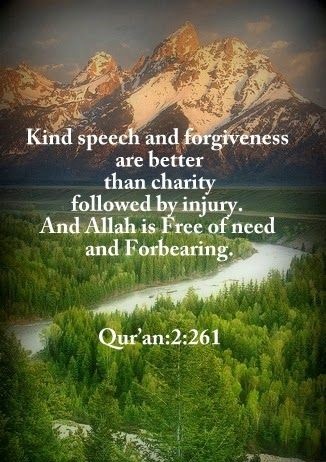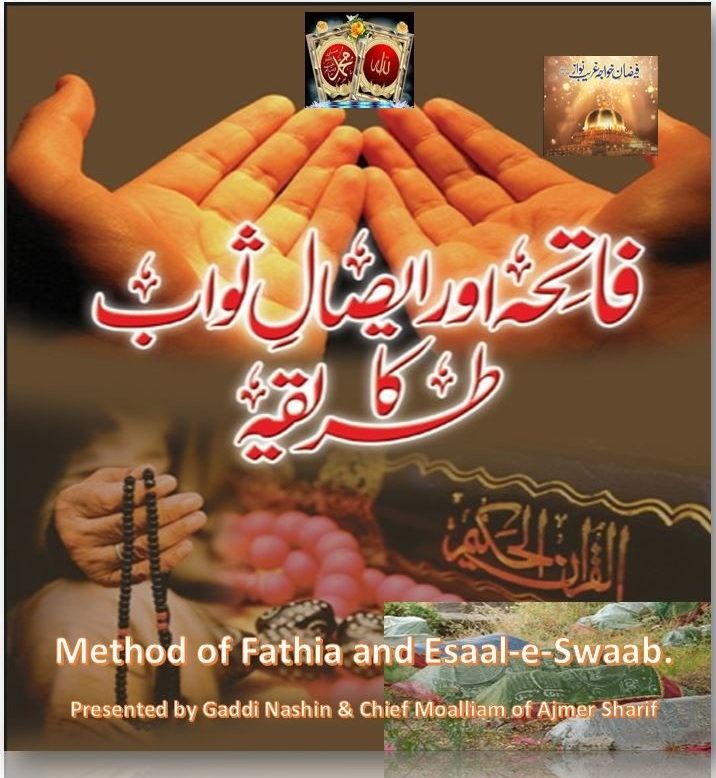
It is first necessary to define human nature and proceed to establish it relationship to Islam. Human nature is the collection of inherent qualities and habits that are common to all people (i.e., the innate qualities and habits humans possess is their nature). for example, we work, eat, drink, sleep, have other physical and intimate needs and desires, have emotions, socialize, fight, and seek power, authority and fame, etc. All of these are but a few examples of human nature.
Human begins are comprised of a spirit and physical structure, i.e., the soul and body. Therefore, we have both spiritual and physical needs. We are not angles or beasts. According to Islam, it is a great mistake to consider humans mere ‘brutes; and to exclude the spiritual aspect of our being. Similarly, it would be a mistake to consider ourselves like or greater than angels and completely disregard to biological and animalistic aspects of our being. We are not merely robots like angles, and we certainly are much better than animals. Neither did we evolve from animals, nor we are subtle as angles.
We have freedom to choose and power to know good and bad, right and wrong, and impiety and piety. Angels and animals do not have the freedom of choice, nor do they have anything to choose. For example, if a lion desires to have vegetarian dish, its wish cannot come true. Similarly, if a deer craves for steak, its wish cannot come true either. In fact, lion and deer cannot even wish for vegetarian and non-vegetarian dishes.
In the same manner, Allah did not grant angels the freedom of choice, They are merely robot-like and do as they are programmed. Consequently, they are not rewarded or punished for their behaviour. In contrast, Allah granted humans the freedom of choice, and they have a lot from which to choose, so they can use this privilege. For Example, they can choose to eat whatever they wish, vegetarian or non-vegetarian, healthy or unhealthy, expensive or inexpensive. In the end, only they will bear the consequences for what they choose.
For any system, ideology, or religion to be fit for human nature, it must comprehensively consider every inherent quality and habit of humans and must provide proper guidance to assist people in reaching their goal of life. If it repels or completely suppresses any inherent quality and habit, and/or if it leaves any one of them out or provides no guidance, then that system, ideology, or religion is not fit for humans is incomplete and deficient.
It is unlikely that a follower of one religion will seek part of another religion to fill to a void in his own. If this occurs, then how can one know to which religion this follower really belongs? Where does his loyalty lie? Which religion or system does he call his own? Meanwhile, he is forced to follow parts of other religion(s) because his own religion lacks a necessary aspect. Naturally, humans embrace and follow what is or seems to be most complete, beneficial, and convenient. Thus, in the presence of an absolute system of life, and incomplete system is doomed to fail.
Islam does not repel, completely suppress, or ignore any part of human nature; instead it teaches its followers how to control and shape their nature appropriately. Wherever there is slight chance of misusing natural qualities and habits by humans, Islam steps in and changes the course of human nature towards the legitimate purpose. The principles and teachings of Islam do not collide with human nature. They remain side by side with humans, gradually changing humans’ course of actions so that they can easily adapt and learn to walk confidently on the righteous path. Islam accompanies its followers until they acquire the ultimate success of the Hereafter.
A religion or any secular system of life that attempts to stop any natural behaviour of man meets with devastating blows and eventually finds itself without any following. For example , to completely stop the natural flow of a river and save a city from flood waters is nearly impossible, but, even if achieved temporarily, it may create bigger problems later on. Instead, changing its course, though it requires had work, eventually solves the problem. If the course of floodwaters is diverted from a city to dry land, it will bring many benefits. The city will be saved from flooding, and the water will simultaneously irrigate dry land, making it arable.
If we seal the cap of a kettle on a burning stove, with the built-up pressure the kettle is bound to burst. Similarly, if an ideology/religion suppresses, ignores, or sacrifices the natural desires and needs of people, even in the name of any greater good, then people cannot function Properly, and the outcome will be devastating. As noted earlier, human beings are not like angels, and thus no action should be taken to turn them into angels. Let them be human, and prescribe a system that keeps them ‘human’ and simultaneously keeps them from falling to the level of animals or even worse. This is exactly what Islam does.
Islam is not against people’s natural urge to acquire wealth, but it demands that they earn it through the legitimate means that it establishes and regulates. Islam is not against spending money, but it encourages its followers to spend it for righteous purposes such as, for example, helping the needy. According to Islam, using your wealth and resources for the betterment of the less fortunate or to solve the problems of your community will not reduce your wealth; instead, Allah, Who gave you the wealth in the first place, certainly has the ability to replenish and increase it. Islam does not forcefully take peoples’ wealth against their will, even for the greater good of others. It promises great rewards to people who willingly and with intent to please Allah spend their money for humanitarian purposes.
Islam is not against eating delicious foods, but it teaches that a half-empty stomach is healthier that a stomach stuffed with food. Staying relatively hungry allows one to be thankful to the Lord for his bounties and to be mindful of those starving around the world. Islam is not against wearing lavish clothes, but it rewards simplicity; being simple urges the inner sole and conscience to be less attracted to this material world and more attracted to our higher purpose.
Islam says eat whatever you like, but make sure it is halal (Permissible to eat), and drink as much as you like, but refrain from haram (forbidden) drinks. Sleep as much as necessary, but perform you daily prayers before and after you sleep. Stay up as much as you need to, but be mindful of your health.
Love you family and friends to the full extent, but do not forget your Lord and your obligations to Him. Worship your Lord as much as you want to, in order to get closer to Him, but not at the expense of your family, which needs your time and attention. Overall, keep everything in balance, be moderate, and do not become extremists of any sort.
Use time and energy wisely in helping others, and take as much burden as you can bear; correcting the world is not your problem, but it is your continuous duty to correct yourself first. Be flexible and easy on yourself and on others. Teach, but do not impose.
Islam requires its followers to do only what is humanly possible and provides guidance for every situation and according to everyone’s capacity. In essence, it is the way of life in strict accordance with human nature. Therefore, on Judgement Day, Allah will question and hold everyone accountable according to his her capability, knowledge, and performance, in order that justice prevails. The Islamic system of life intends for people to uphold their human status, become devout followers, avoid falling below the status of animals, and Surpass angelic qualities. To ensure the fulfillment of this goal. Islam lays down principles that are fit for human nature and easy to follow.
This post is in series of many to come on the topic of Islam from a Sufi Perspective. More articles are to follow. Please follow in the Category : Islam as a Sufi Perspective.
